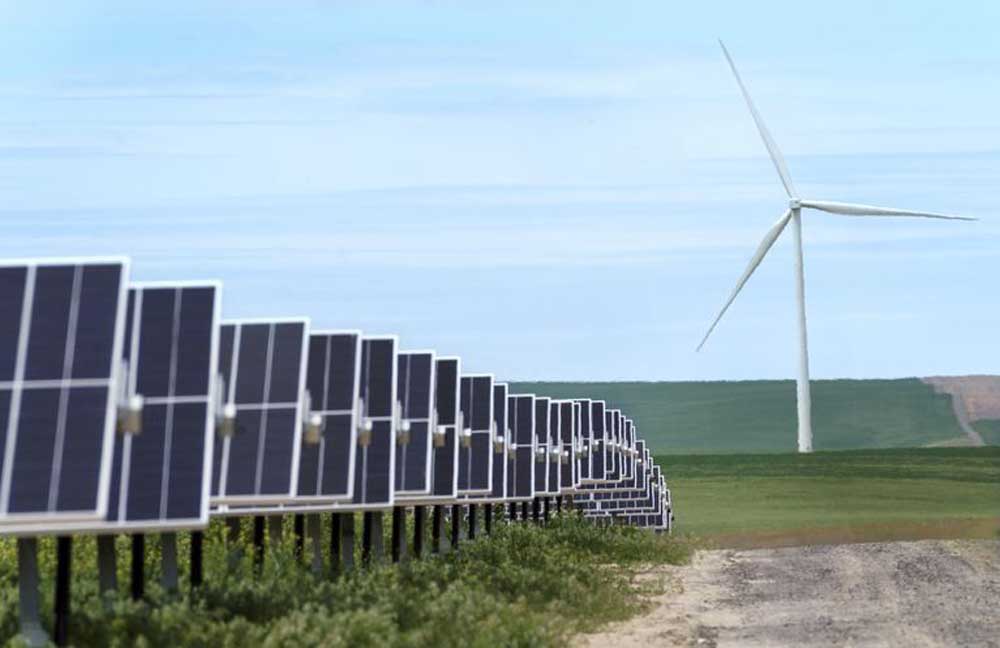Voice of Chieftain 25 Sept
Published 7:30 am Wednesday, September 25, 2019

- Climate Strike protesters in Melbourne, Australia. An estimated 100,000 people participated in strikes and marchs in Melbourne and Sydney.
The worldwide September 20 climate strike engaged millions of people in 150 countries around the globe. In Enterprise, a group of 30 local residents gathered at the courthouse, talked about their concerns, and they quietly carried their signs around the town.
Climate change is something we must all take seriously. It’s not a joke. It’s not a conspiracy. It’s sound science. Wallowa County is perched in a sort of temperate “sweet zone”, where temperature increases, drought and storm events may be relatively mild, and for residents, sea level rise is moot. But even here, we are feeling its effects. Grand fir are perishing because, according to OSU Extension forester John Punches, its needles cannot withstand the few higher temperature periods we experience in most summers now. This year we escaped fires as well as smoke. But in past years we have not been so lucky and our air quality has been compromised. Salmon and steelhead runs are down due to ocean conditions as much as other factors. The list goes on.
Science is irrefutably clear, and has been since the late 1800’s, that the climate change we are experiencing now is driven by human emissions of greenhouse gases. It is not a “natural process.” Nor is it a hoax. Our nation, our industries, and our economies are built on science. The science of climate change is simply basic physics, chemistry, and biology applied to the earth, and the same as the technologies we rely upon every day. Deny climate science and you deny science, along with all it has done for us.
Greenhouse gases and climates have, indeed, varied through time. Most of the Earth’s warm periods coincide with elevated CO2 produced by volcanic activity. For example, when our own Columbia River basalts erupted, they put large amounts of carbon dioxide into the atmosphere, temporarily increasing atmospheric CO2 above 600 ppm. Global temperatures increased by 14 degrees F, (6 degrees C) from a global average of 59 F to 73 F. The Earth’s relatively small ice caps disappeared. Precipitation patterns changed, with areas that had been well-vegetated experiencing major droughts. There were significant extinctions. The worst-case scenario was the eruption of basalts in Siberia, about 255 million years ago. Those eruptions produced enough basalt to cover the entire continental U.S. in almost a mile of lava. The eruptions, over a period of perhaps 200,000 years, pushed atmospheric carbon dioxide to about 2,500 ppm, global average temperatures to the vicinity of 80 degrees F. and ocean surface temperatures to around 100 F. About 95% of the species on the planet went extinct.
Today there are no flood basalts to blame for the increase in carbon dioxide. And no volcanic eruptions of the scale and type to produce elevated atmospheric CO2. Instead, it is humanity, hard at work expelling the carbon (dioxide) stored in coal, oil and natural gas throughout the last 400 million years back into the atmosphere, that is raising global temperatures. And we are doing this faster than ever recorded throughout geologic history, making it nearly impossible for plants, animals, and ecosystems to adjust, providing a legacy of ecological impoverishment to future generations.
But we can slow and perhaps stop this process. The youths around the globe who organized the climate strike see a perilous future ahead if we do not. They are rightly seeking a shift in attitudes and understanding, a new climate for combating climate change. Reducing atmospheric carbon can provide economic benefits for rural places like Wallowa County, including support for sustainable, long-term carbon sequestration management in private forests and grasslands, and continued growth of solar power. We should take advantage of these opportunities. Even if you think that this is a “natural cycle”, the consequences of increased atmospheric carbon, including sea level rise, storms, droughts, and heat waves, will be economically and ecologically disastrous. Maybe not next year. Maybe not even in the next decade. But without action, eventually economies will slow and people will suffer on a less-habitable planet. It’s time to change the climate of discussions about climate change, take this seriously and find solutions.








